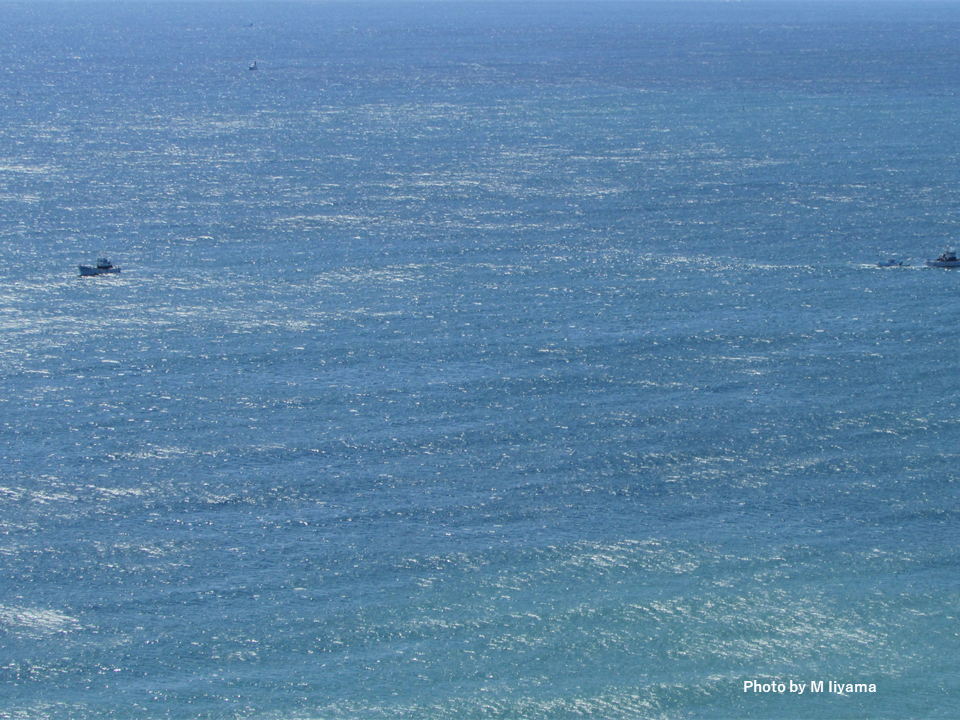Pick Up
807. Agreement on Conservation and Sustainability of Marine Areas Beyond National Jurisdiction

807. Agreement on Conservation and Sustainability of Marine Areas Beyond National Jurisdiction
In terms of climate change, the 1.5°C target of the Paris Agreement is well known, but in biodiversity conservation, there is the "30 by 30" commitment made at the 15th Conference of the Parties (COP15) to the UN Convention on Biological Diversity in Montreal, Canada, last December, as part of the Kunming Montreal Global Biodiversity Framework. This commitment states that by 2030, at least 30% of the world's terrestrial, inland water, coastal and marine areas should be conserved, with particular emphasis on areas important for biodiversity and ecosystem functions and services.
On the other hand, in addition to land areas, more than two-thirds of the oceans, which cover 70% of the Earth's surface, are marine areas beyond national jurisdiction, including the high seas and continental shelves, as well as the seabed and polar regions. In fact, areas beyond national jurisdiction contain extremely diverse and important ecosystems, including endemic species that have evolved to withstand conditions of extreme temperature, salinity, water pressure and darkness. These areas are affected by human activities, such as pollution and noise from inappropriate fishing and shipping, and the development of seabed mineral resources, which raise concerns about maintaining their sustainability. Against this background, there have long been calls for international efforts to conserve biodiversity in marine areas beyond national jurisdiction.
On June 19, the United Nations announced the adoption of a historic agreement to ensure the conservation and sustainable use of biodiversity in marine areas beyond national jurisdiction. Describing the agreement as a sign of the strength of transnational multilateralism in the face of a global crisis, UN Secretary-General António Guterres praised nations for reaching an agreement that “gives the ocean, a public good, a chance to live and fight again”.
The agreement announced by the United Nations continues the legacy of the United Nations Convention on the Law of the Sea (UNCLOS), also known as the "Constitution of the Sea," and calls for responsible use while recognizing freedom in the ocean. It will significantly strengthen the legal framework for the conservation and sustainable use of marine biodiversity and enable countries to cooperate in the use of the oceans, which is expected to be an important initiative in achieving the 2030 Sustainable Development Goals and the ocean-related targets of the Kunming-Montreal Global Biodiversity Framework.
The agreement addresses the following four issues.
- To ensure that marine genetic resources from areas beyond national jurisdiction and their digital sequence information are available for the benefit of humankind.
- To enable the establishment of marine protected areas on the high seas and in international seabed areas for the conservation and protection of habitats and species of biological importance. These measures are also important for achieving the global goal of the Kunming-Montreal "30 by 30" agreement to effectively conserve and manage at least 30% of the world's terrestrial, inland, marine and coastal areas by 2030.
- To ensure that environmental impact assessments are carried out in waters beyond national jurisdiction and are taken into account in policy-making. It also provides the world's first international legal framework for environmental activities that cause climate change and ocean acidification.
- To provide technology and capacity-building support to help Parties, particularly developing countries, carry out responsible activities.
In addition, the initiative is expected to expand investment and negotiation opportunities to address cross-cutting issues faced by the countries, regions and organizations concerned within the legal framework related to the United Nations Convention on the Law of the Sea.
The agreement will be open for signature for two years from September 20, 2023, the day after the SDG Summit scheduled to take place in September at UN Headquarters in New York, and will enter into force upon ratification by more than 60 countries.
Contributors: Solongo TUMUR and IIYAMA Miyuki (Information Program)
